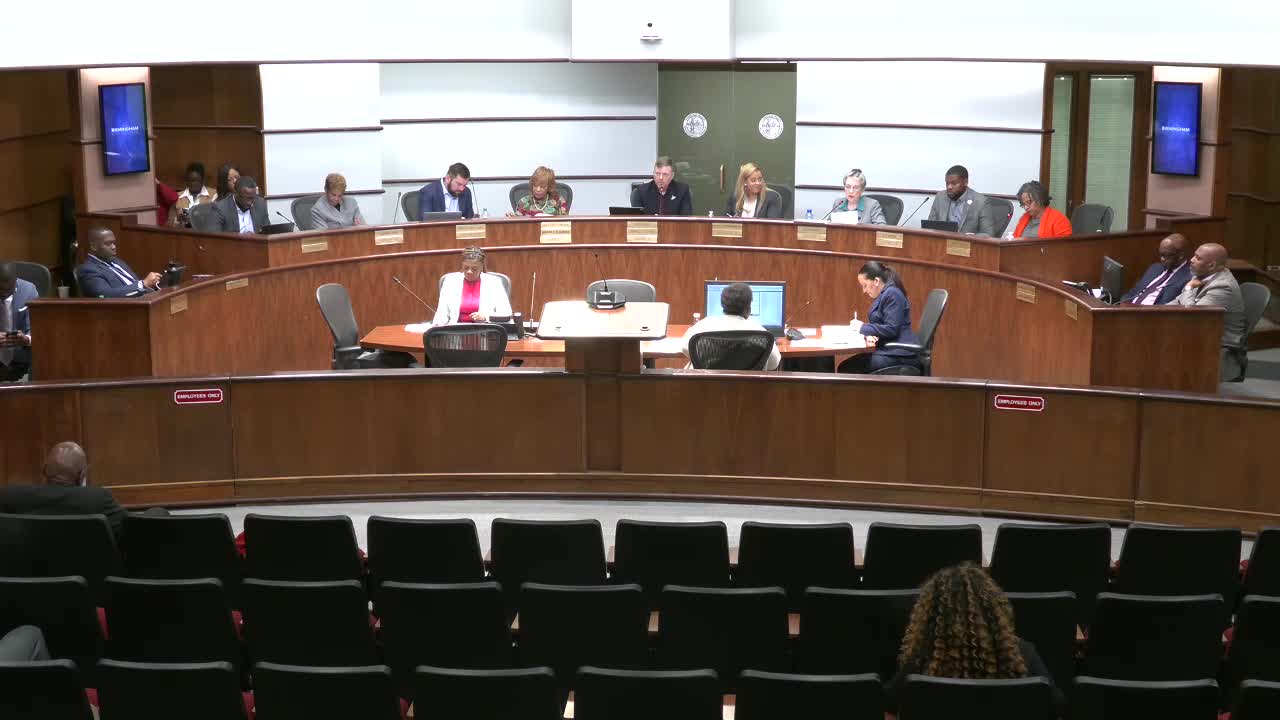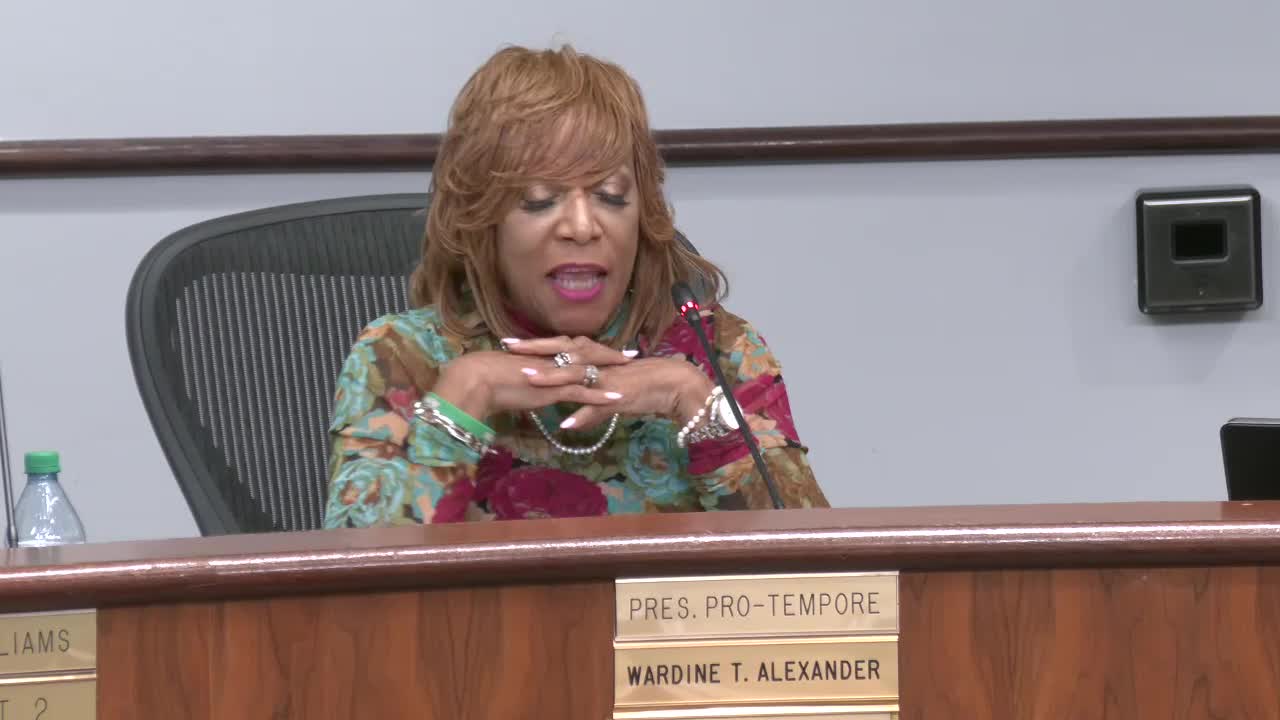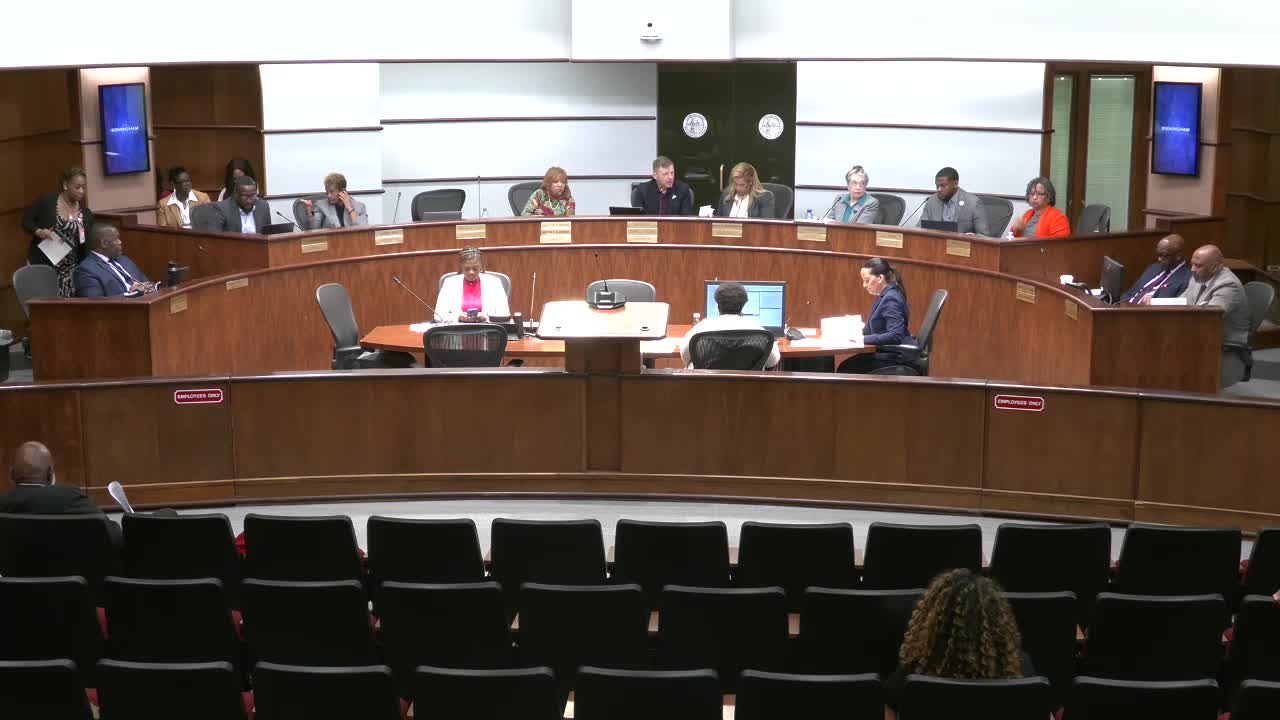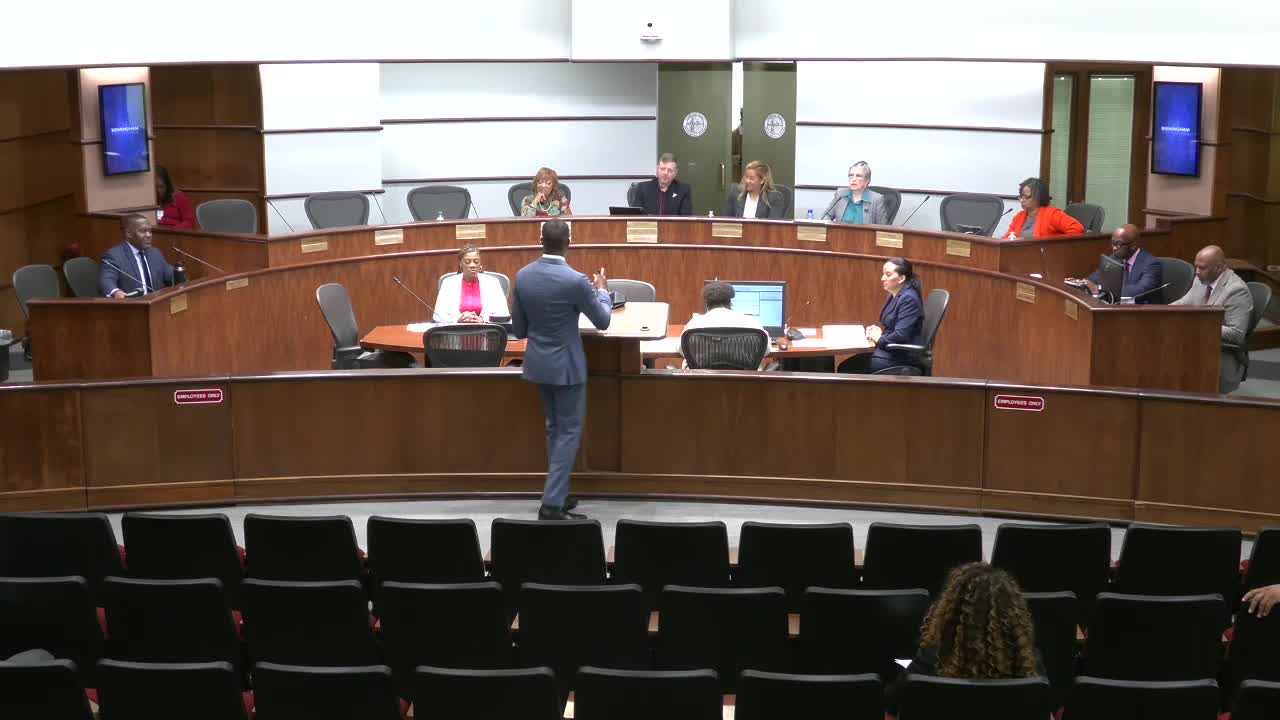Article not found
This article is no longer available. But don't worry—we've gathered other articles that discuss the same topic.

Public commenters press council on trash-can thefts, Sixteenth Street Baptist parking and mental-health services

Council and mayor debate illegal dumping, street excavation and camera use; transportation committee to press utilities

Council approves consent agenda and appoints members to Planning Commission and Zoning Board

